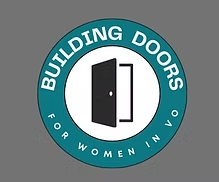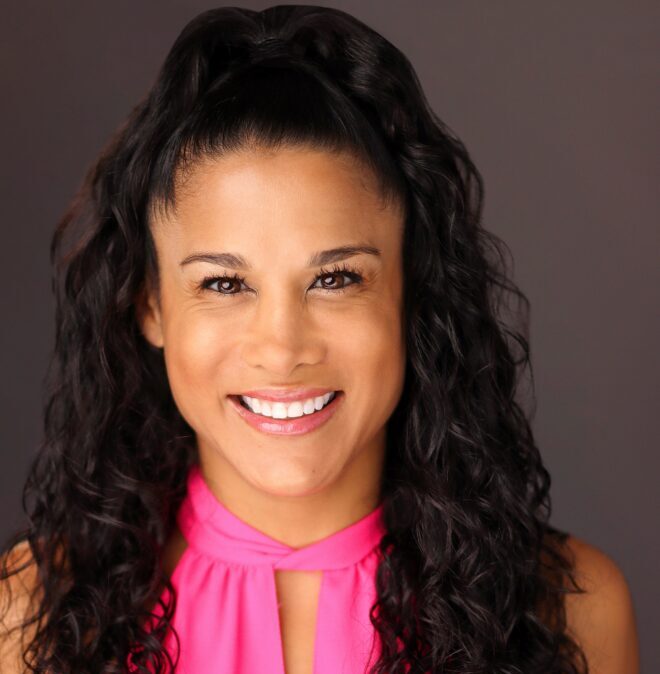Back in the early 1990’s, I was studying acting at Montclair State University when one of the upperclassmen got an internship at a talent agency in New York City. I remember her telling anyone who would listen what an invaluable experience it was. When I was a junior, a guest teacher who was also a talent manager gave us an assignment to go into NYC and interview a bona fide agent, saying in not so many words, “Agents love to talk about themselves.” So I took out my Ross Reports – a pre-internet booklet of all the agents and casting directors in town – and started cold calling.
Eventually, I found one named Victoria Kress at The Carson Organization Ltd., a boutique agency representing talent aged 30 and under, owned and operated by Steve Carson and Maria Burton Carson – the adopted daughter of Elizabeth Taylor and Richard Burton. They had only been in existence for about four months, and during my interview with her, Victoria mentioned needing an intern. I quickly offered myself up, and got the job. Interning became ‘assisting’ right after I graduated with my BFA, and about a year and a half later Victoria quit and Steve offered me the opportunity to run the theater department, which I excitedly accepted. I had been cutting and stapling handsome actors’ headshots and resumes together for years, securing appointments for folks who I thought were talented actors but who couldn’t seem to get cast…. so I thought being an agent was a better career path for me than joining the fray.
Eight months later I was doing so well as a theater agent that they fired the film and television agent and handed me that division as well. I operated as a SAG/AFTRA/Equity-franchised agent from 1994 until July 1996 when I booked a major music tour and promptly quit, leaving behind 125 signed clients, several of whom I’m still in touch with today. My rationale was that it was easier to manage my own career than 125 others.\
I could probably write a 500-page book about that whole experience, what I learned about acting, about actors, about good and bad behavior in an agent’s office, about auditioning, about the business of cultivating relationships in a pre-internet showbiz world. You see, back in those days, talent agents were the gatekeepers. You couldn’t get any real auditions without one.
Oh sure, you could wake up at 5:30 AM and go to a Backstage open call session and wait in line with 400 people hoping to be seen, but if you wanted auditions for TV, film, commercials, voice-overs, etc. – an agent was an absolute must. You got headshots done and sent them to agents hoping to get a call.
When I got back from my music tour I used my connections with some casting friends I made to help me make a voice-over demo cassette tape, and sent it all over town for months until I got some calls. Talent agents, up until the mid-to-late 2000’s, had traditionally played a crucial role in representing and promoting actors, basically acting as the only intermediaries between actors and casting directors/studios. They negotiated contracts, secured auditions, and managed careers. One of my first agents, the legendary Ann Wright (now in her 90’s) famously took James Dean around town meeting studios. Those days are long gone.

Due to an abundance of factors, including the rise of technology, changing industry dynamics, and the advent of digital platforms and online casting services, agents no longer carry the same power and influence they once did. Simply because actors – and voice-over artists in particular – have gained direct access to a plethora of auditions and job opportunities I couldn’t have imagined back in the 90’s and early aughts. This explosion of opportunity reduced the ‘exclusive’ role of agents in securing work. Platforms like Voices.com, Voice123, Actors Access, Casting Networks, and many others have enabled voice-over artists to self-submit (and self-promote) at their whim to try and find work independently, further challenging the traditional agent model.
Many voice-over actors now utilize personal branding, social media, and the aforementioned online portfolios to directly (and indirectly) market themselves to clients, ad agencies, and casting directors – all of whom they can choose to ‘follow’ online, ‘like’ their posts, direct message, try and get them to follow back and stand out by promoting their own work, etc. This direct system again bypasses the need for traditional agent representation if you’re a self-starter – you can certainly get as involved as you want in promoting and taking charge of your own career path, rather than sitting back and waiting for your agent to send you something ‘you’re right for’.
While general talent agencies may have seen a decline, specialized agencies focusing on voice-over work or specific niches (like animation, gaming, dubbing etc.) have maintained relevance by offering targeted expertise. Many smaller agencies have merged or been acquired by larger firms, reducing the number of independent agencies, so it’s best to target one you think is a great fit for you and your goals. There are always big agencies with hundreds of clients like a CESD or Atlas that survive and thrive, but who thought Abrams Artists (founded in 1977) would get bought and rebranded as A3 Artists and subsequently shut down four years later?
The transient nature of showbiz continually evolves; now, it is teaching actors that they need to rely on themselves more than ever before. While of course, agents can absolutely still play a significant role in an actor’s career – especially in negotiating complex contracts and providing superior industry connections – their importance has shifted with the changing landscape of the entertainment industry and advancements in technology. Many voice-over actors today navigate a hybrid model, leveraging both agent representation and self-promotion strategies to optimize their careers. The days of just ‘getting an agent and letting them open doors for you’ are over. Rather, agents these days are more interested in the doors you have kicked open all by yourself, the connections YOU have made that THEY can now leverage, and how many casting folks, ad agencies, and clients know who you are and would be interested in hearing your work.
The rise of personal managers has also contributed to the decline of agents’ importance. Historically, talent agents focused on securing work and negotiating contracts, while managers were responsible for career guidance and long-term strategy. Over the past 20 years or so, managers began to take on some of the roles traditionally held by agents, such as negotiating deals and finding opportunities for their clients. Managers who have much smaller rosters often have closer, more personal relationships with their clients, allowing them to provide more tailored career advice and support. This deeper involvement can sometimes reduce the need for a traditional agent, especially as the lines have blurred over time and managers have taken on a more proactive role in securing work.
The positive takeaway here is that you are in charge of your own career. Now, that can be scary, or that can be liberating. In truth, it’s a little bit of both! There are many ways to go, many different strategies to employ, many combinations of efforts/networking/luck/talent that can get you where you want to be. And yes, agents can certainly help you in all the ways I’ve outlined, but the moral of the story is that you absolutely don’t need them to grab a foothold and establish yourself in this business.
What you need is a positive attitude, a work ethic, talent, to continue studying, the ability to network, and the willingness to put yourself and your work out there. Connecting with the difference makers and people who can help you on the platforms where they already are, agent or otherwise, is your best bet for success in the new VO model.
Check out our free PDF with pro tips from real working voice-over actors here!
Want to learn more about voiceover? Sign up for our introductory VO webinar.





